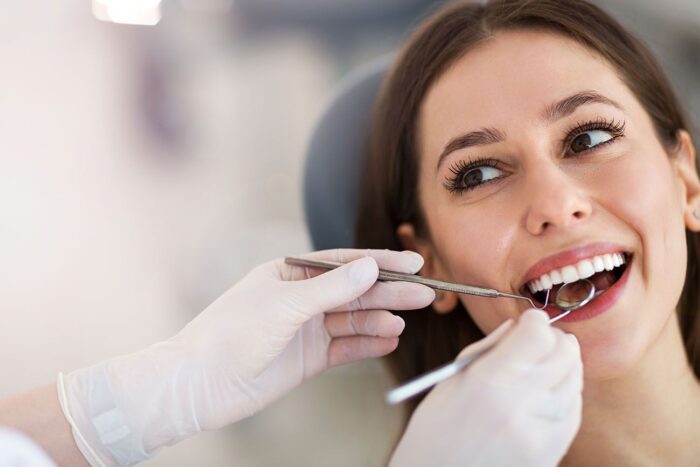Maintaining good oral health goes beyond brushing your teeth and freshening your breath. One crucial aspect that often gets overlooked is the health of your gums. You may increase your chances of developing gum disease without a good oral health routine. Also, you can experience negative effects to your overall health. Therefore, you should try to prevent gum disease before it starts.

Understanding Gum Disease
Gum disease is an infection of the tissues surrounding and supporting your teeth. It begins with plaque, a sticky film of bacteria that forms on your teeth. If not removed through regular oral hygiene practices, plaque can harden into tartar. Unfortunately, you cannot remove tartar by brushing alone. You must seek professional help. Over time, tartar buildup irritates the gums, leading to inflammation and gum disease.
The Importance of Preventing Gum Disease
Preventing gum disease is vital for several reasons.
Oral Health Impact
Gum disease can cause gum recession, tooth loss, and even bone damage in severe cases. However, you can protect the foundation of your smile and ensure the longevity of your natural teeth.
Systemic Health Connections
Research also shows a link between gum disease and systemic conditions, such as heart disease and diabetes. You can also develop respiratory infections. Some people can have adverse pregnancy outcomes. Keeping healthy gums reduces the risk of these health complications.
Brushing and Flossing: The Foundation of Prevention
Regular brushing twice a day for at least two minutes is vital to avoid gum disease. When brushing, use a soft-bristled toothbrush and fluoride toothpaste. Also, you should brush your tongue to remove bacteria and freshen your breath.
Flossing is often neglected but is equally vital in gum disease prevention. It removes plaque and food particles between your teeth and the gum line. Gently glide the floss back and forth, curving around each tooth. If traditional flossing is hard, try other options like floss picks or water flossers.
Regular Dental Checkups
Visiting your dentist regularly is not just for addressing dental issues. It also plays a significant role in preventing gum disease.
Even with great oral hygiene, plaque and tartar can build in hard-to-reach areas. Regular dental cleanings effectively remove tartar buildup. This will reduce the risk of gum disease development.
Dentists are trained to identify the early signs of gum disease. Regular checkups allow them to catch any signs of inflammation or infection in your gums before progressing to advanced stages. Early intervention can also prevent permanent damage. As a result, it can save you from costly care.
Lifestyle Habits that Promote Gum Health
On top of a solid oral hygiene routine, you can choose several lifestyle changes to have healthy gums.
Avoid Tobacco Use
Smoking and tobacco use greatly increase the risk of gum disease. These habits also weaken your immune system. This will impair blood flow to the gums and hinder healing.
Healthy Diet
Eating a balanced diet of fruits, vegetables, and lean proteins contributes to overall gum health. Avoid sugary snacks and beverages. This is because they nourish bacteria that can lead to gum disease. Try to eat foods that are high in crucial vitamins and minerals to reduce the chances of gum disease.
